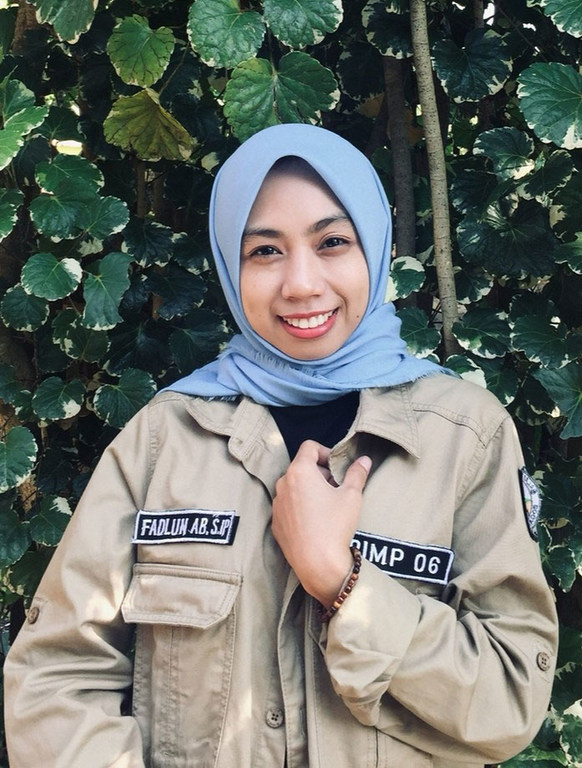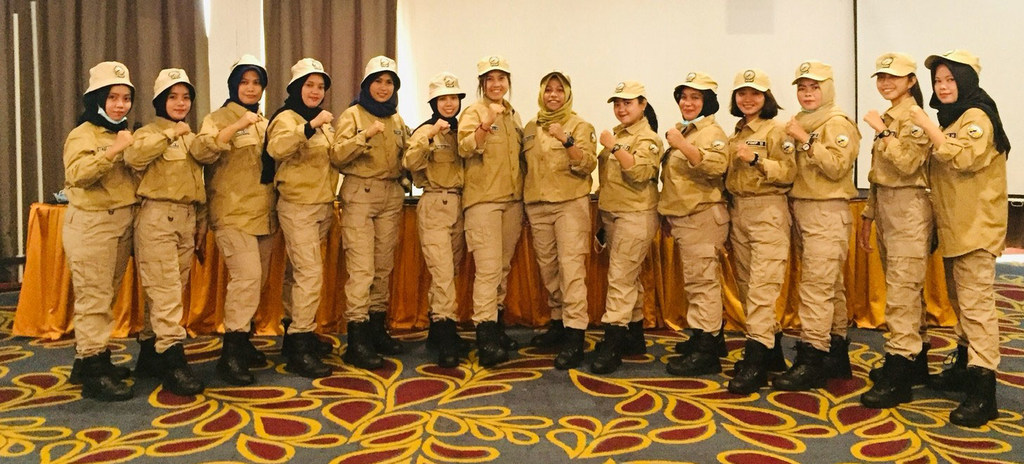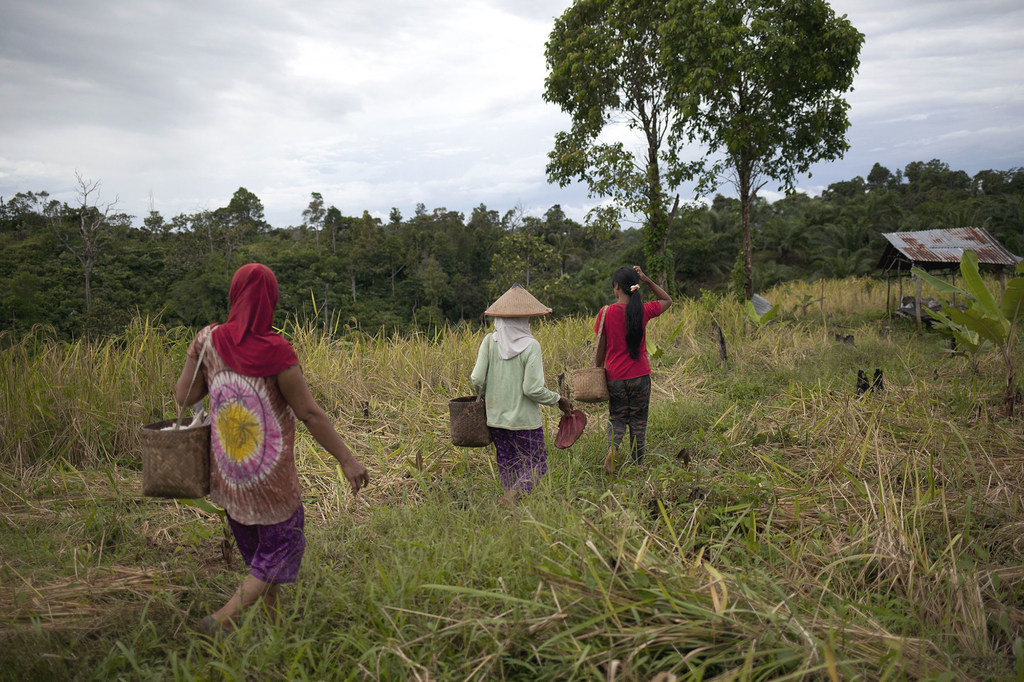Conservation jobs are scarce in the leafy village of Toraut, Indonesia, so when 27-year-old Fadlun Arrayan Bonde returned from university, she answered a call for women to help to patrol the neighbouring national park. She ended up forging a dynamic new career path to protect nature while transforming her community.
Known by her nickname, Ega was one of 15 women selected to participate in the UN Development Programme-supported Perempuan Inspiratif Mitra Polhut (Inspiring Women to Partner with Forest Rangers) initiative, which aims to protect the Bogani Nani Wartabone National Park and provide opportunities to nearby communities.

“I have always been passionate about nature and conservation. I grew up in a village surrounded by forests. Both of my grandfathers inspired me by sharing their local and traditional wisdom and encouraged me to know the forest and plant trees. They told me about nature’s power and explained that the language of nature is the oldest language on Earth, and so we have to listen to it.
It’s kind of a little bit mystical. For example, according to stories, if you see a lot of ants coming up out of the ground, it means it’s going to rain very soon.
The message from my grandfathers is that the energy and the language of the nature should be appreciated and respected.
‘My life changed’
Since high school, I’ve been active in the environmental movement, and I studied international relations at university to keep my mind open to what is happening in the world. I always wanted to return to my home village after graduating.
My life changed in November 2020 when I joined the initiative, the first of its kind in Indonesia.
We were given basic police training and education on communication, negotiation, and entrepreneurship skills.
We were also taught how to empower local villagers to eke out alternative sustainable livelihoods and to work more closely alongside the national park authority.
I learned what rangers do and became more passionate about the work. Now I am really proud to be serving the community.
The community rangers help to protect endangered species. There are mammals, reptiles, and more than 100 bird species that make their home in the park.
Working with national park forest rangers, we also play a role in stamping out crime and combating the illicit fauna and flora market and illegal wildlife trade.
I work at least 10 days a month, but in reality, because of the nature of the work, it takes a longer time to invest in terms of getting a commitment or “buy in” from the community. Part of it is building connections.

‘Conservation lady’
It feels very satisfying to know that our effort can change someone’s life for the better. Like when we can facilitate community groups to get certifications, enabling them to access sustainable markets for their products. I think there is so much more I can do for nature, but also for improving myself and my community for better opportunities.
I feel encouraged to talk about conservation and engage more with my community. I am motivated to talk to people. It’s funny, but people in my village now think of me not only as Ega but as “the conservation lady”, or the person you need to contact when you spot suspicious illegal wildlife trade activities.
I feel proud about that.
Cross generation inspiration
Sharing knowledge about wildlife to the younger generation makes me feel useful. The most important and meaningful thing about my job is to share awareness about conservation and the importance of wildlife.
If we talk about tree, we’re not talking about just the leaf, but also the roots.
If they are well prepared from an early age, they will carry knowledge about the conservation and wildlife into the future.

‘Staying silent won’t change anything’
Our Earth is aging and overpopulated. Screaming loudly might not help, but staying silent also will not change anything. Women can raise our voices more and make Earth a better place.
I have one big message for young woman: be brave. Don’t be scared to start working for conservation. You need to encourage yourself to take the first steps because the first step is very important. It’s not as scary as you think.”
Empowering rangers
- Although women play a vital role in managing natural resources and are disproportionally affected by biodiversity loss, they are often excluded from decision-making and leadership opportunities, so the UN Development Programme (UNDP) launched a series of innovative projects in the Asia-Pacific region to change that.
- Women rangers are also working to protect land and empower their communities in China, India, Viet Nam, and other countries.
- In line with the 2030 Agenda for Sustainable Development, these conservation projects are helping to combat climate change, empower women, and help them to transform their communities.
As an independent media platform, we do not take advertisements from governments and corporate houses. It is you, our readers, who have supported us on our journey to do honest and unbiased journalism. Please contribute, so that we can continue to do the same in future.
